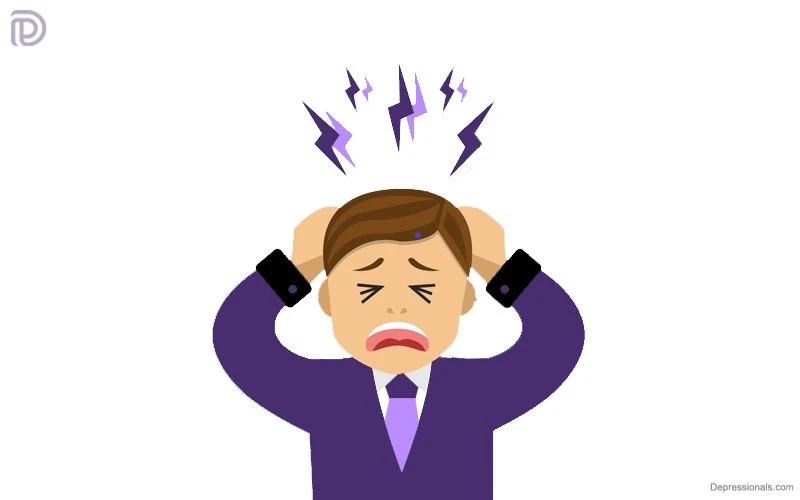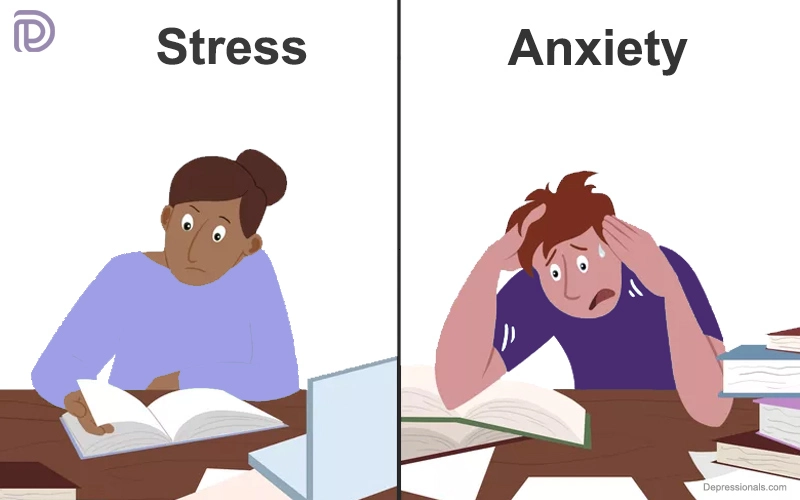Almost everyone experiences stress, but many do not know what to do about it. It’s crucial to handle stress in a healthy way when major life stresses arise. Five of the most stressful life events are:
- Death of a loved one
- Separation or divorce
- Getting married
- Starting new job
- Workplace stressors
Stress might seem like an emotional issue – something that only exists inside your head. When we deal with life’s most stressful situations, stress can become a physical problem.
Adan says there may be issues related to stored-up stress after stressful events in life.
- Digestive health
- Inflammation
- Immune system
- Bone density
- Sleep
- Anxiety
“Everyone is impacted by day-to-day stress,” she says. Threats and changes are constantly bombarding us, but we stay reactive since we don’t usually fight or run. Stress hormones are bathing and flooding us.”
The following are stressful life events scale, some of life’s major stressors and some tips for dealing with them.

1. Death of a loved one
One of the most stressful things we experience is the death of a spouse or other loved one. There are different ways in which bereavement can affect people. There may be feelings of shock, grief, anger, guilt or even shame. The world may seem upside down to you and you’re not sure how to move forward without them.
This is an important time for you to take care of yourself. Make sure you get enough rest and eat well. Be sure not to overwhelm yourself – ask for help from others. Sharing your grief with friends and family is often the best way to heal. It can take a long time to recover from the loss of a spouse or other loved one.
You may need some professional help to get through your grief if you are having trouble managing your emotions or daily life. A grief support group may be able to help.
Related: Stress Management Techniques
2. Separation or divorce
Few things in life are more stressful than separation and divorce. Even if the two partners agree to end the relationship, there are always practical, emotional, and legal considerations to consider, such as living arrangements, finances and child custody.
Divorce and separation can be stressful, but you can do things to reduce the stress, such as forming a good support system, taking time to make decisions, and staying physically active. Also, if you talk to your children honestly and remain civil towards your partner, you can help them cope with the separation or divorce stress.
Related: Depression and Divorce
3. Marital separation
It may not come with the same sense of finality as divorce, but it is very similar to a separation. Accordingly, you will have to obtain emotional support from other individuals in order to alleviate the effects of that stress.
4. Detention in jail or prison
It can be stressful and even derail your career to commit a crime and spend time in prison. This is probably the easiest thing on the list to prevent. Alternatively, if you find yourself behind bars, make the most of it by finding new hobbies and goals, such as learning about a new subject or learning how to exercise.
5. Death of a close family member
Your world can seem to fall apart when a relative (other than your spouse) dies. It’s crucial that you let yourself grieve without burying yourself in work responsibilities (such as exercising, meditation, or group activities), and that you find healthy outlets that help ease the pain (such as group activities).
6. Chronic illness or injury
People with long-term health conditions, as well as their loved ones, can be stressed. Additionally to life’s routine stressors, you may be dealing with chronic pain, finances, or disability restrictions caused by your illness.
Do your best to understand your injury or illness and how to treat it. Your expectations may need to be adjusted according to your situation. Get enough sleep, eat healthily, and exercise if you are able. Spend your time doing activities and with people who make you feel the happiest so you can avoid situations that will cause you more stress.
7. Getting married
Marrying is one of the most stressful events in life, on the other hand. Wedding planning can be a stressful process, even though it is generally one of the most beautiful times of our lives. It’s difficult to organize the event while worrying about whether all the attendees will have a good time. You may feel overwhelmed on your big day if you have a conflict with your family.
It is important to communicate openly with your family members about what you envision for your wedding, prioritizing what is important to you, and taking good care of yourself during the planning process. Make sure to keep in touch with your fiancé during the wedding planning process, and make time to think about things other than the wedding when you’re not planning the wedding.
Read: What is a Toxic Relationship
8. Losing Your Job or Starting a New Job
It can be very stressful to lose your job. This may lead to anxiety or depression, as well as financial struggles. An employee who is fired from their job may experience a decrease in self-esteem and be stressed about money and finding a new job.
The disruption of your normal daily routine and the uncertainty of the future lead to a great deal of stress. Although you may not be working, you can still encounter the same stressors. Many people face stress when they start a new job. Our regular routines are disrupted and result in stress.
It can be stressful to learn a new environment and new expectations at your first job, regardless of your career. If you are feeling overwhelmed, take it slow and ask questions. When you remain unemployed for some time, you may be able to benefit financially from resources available to you, such as federal and state government.
Related: Work Depression
8(2) Other Workplace stressors
The biggest stressor in a worker’s life is their job, according to one quarter. Besides job stress, other common workplace sources of stress include fear of firing, heavy workloads, poor management, and no control over activities. We need to control workplace stress because it can affect our health outside of work.
Workplace stress can be handled in two ways: managing time efficiently and prioritizing tasks. It is often helpful to delegate work when you feel overwhelmed, such as when preparing for a big presentation or writing a critical report.
Related: Stressful Work Environment
9. Marital Reconciliation
Unnecessary conflict can be caused by stress in a marriage. Small issues become major disagreements due to both parties being too stressed to deal with their emotions. You can improve the quality of life for the whole family if you reduce the stress in your marriage.
10. Retirement
Even though many people find their work stressful, it seems they would be eager to retire, but retiring can also be a stressful transition. “Who am I?” is a question that many people struggle with. Their careers have defined their identity for decades.
You will have an opportunity to reinvent yourself if you allow yourself enough time to adjust. If your routines are no longer there, it can also be a little disturbing. To stay active and provide some structure to your day, look for activities that engage you.
11. Change in health of a family member
Stress can result from any type of change, even good change. There is more to change or an event than its occurrence, but it’s also the response to it that counts. Every person experiences stress differently, so it is important to look for signs of stress in your family members as well.
12. Pregnancy
Stress is common during pregnancy since it is a time when many things are changing. The way you live, the shape of your body, and the way you feel all change during pregnancy. It is true that these changes can be exciting, but they can also be stressful.
Stress that continues for a long time can be responsible for health issues, such as high blood pressure and heart disease. Premature birth (birth before 37 weeks of pregnancy) or low weight babies (births below 5 pounds, 8 ounces) can increase your chances of having a stressful pregnancy. The health risks associated with premature or underweight babies are higher.
Read: Seasonal Affective Disorder
13. Sex difficulties
It is possible for men of any age to suffer from erectile dysfunction as a result of stress in some way. The most common cause of erectile dysfunction for men under 30 is anxiety and nervousness. Erectile dysfunction caused by psychological issues tends to be short-lived.
Erectile dysfunction is more prevalent among men over 30 due to the stress they endure at work and at home.
The aging process may cause men over 50 to experience erectile dysfunction. Anxiety and stress can also be caused by life circumstances in men, including the loss of a partner or retirement. This can contribute to erectile dysfunction.
14. Gain of a new family member
It is not uncommon for toddlers to think that the new baby has invaded their territory, but older children might feel the same way, too. The birth of a new baby changes a family’s circumstances and a child’s place in the family.
Remember that the feelings of your siblings may differ from yours, regardless of how overjoyed you are. Take time to spend individually with your parents, as well as with the family. Even if you find it challenging to manage extracurricular activities with a newborn, you should keep your older child engaged.
Be ready to acknowledge and validate her feelings, as well as her frustrations. Listen carefully to her frustrations and acknowledge her feelings. If appropriate, empower your child to take care of the newborn.
15. Business readjustment
Every entrepreneur sometimes knows it can be overwhelming to run a small business. Honestly, it could feel like that a lot of the time. It’s stressful to own and run your own business because you do everything, or almost everything, yourself. Fortunately, there are strategies you can use to manage business stress.
The demands on your time seem unending, and you are expected to wear many hats at once.
16. Financial problems
Stress is often caused by financial worries. The American Psychological Association (APA) reports that 76% of Americans say money is a major stressor in their life. In tough economic times, the APA provides these tips for managing financial stress:
Make a plan to manage your finances more efficiently by identifying your financial stressors.
Take stock of the way you deal with money stress – look for unhealthy behaviors, such as gambling or drinking, as a means of relieving money stress.
Challenges in the financial market can be used as a catalyst for positive change.
Read: Financial Stress
17. Moving to a new home
Moving is another stressful event in life. The first step is to find the right place. You also need to pack and unpack, find new schools, shops and any other services you need, plus worry about finances. The emotional stress of moving can be just as important as all of the logistical considerations. This is especially true if you are leaving a place you’ve lived for a while and you are having to start over in a new neighborhood, city or even country.
A good way to cope with most stressful life events moving is to research the new area, hire professional movers, and utilize the help of family and friends. Ensure everything goes smoothly by planning. Make friends with your neighbors as soon as you move in and find ways to become involved.
Read: Psychological Disorders
18. Transitioning to adulthood
Adults aren’t the only ones who suffer from stress. It can be hard for you to cope with changes during your teen years. In teens, there are a lot of things to worry about, including peer pressure, interaction with romantic partners for the first time, and physical changes. Students also suffer stress from academic pressures, hectic schedules, and poor sleep and eating habits.
You can reduce your child’s stress levels by making sure they get 8.5 to 9.25 hours of sleep a night and that they keep a regular routine. The best way to sustain energy is to eat a diet rich in fresh fruits and vegetables, whole grains, nuts, and lean protein-free convenience foods. Teenagers can also reduce stress by exercising and spending more time with friends.
Read: 12 Simple Ways To Reduce Stress
How to manage the most stressful events in Life?
It’s possible to reduce the effects of stress on the body. Dr. Adan recommends three steps that can be taken to reduce symptoms and manage stressful life events:
1. Take action
You’re primed to act, so get up and get moving!
“Shake it out after you contract and release your muscles.”. Dr. Adan says you can wring a towel or march in place for 30-60 seconds to reboot your body and regain physical stability.”
2. Breathe
Stop, take a deep breath, and listen to yourself. Using guided imagery and mindfulness can help you experience the moment more fully. The body will be realigned by being present.
“Remember: ‘I am here; this is what it is.’ It’s about acceptance, not control,” she says.
Related: Most Effective Anxiety Breathing Exercises
3. Feel good
Take a few moments to just enjoy yourself. You’ll get the same endorphin rush you get when you exercise.
The doctor encourages us to think about what we are grateful for. Then tap or sing along. Let’s play with Play-Doh at our desks.”






Hello, Neat post. There’s a problem with your site in internet explorer, could check thisK IE still is the marketplace chief and a big element of other people will leave out your magnificent writing because of this problem.
I got what you intend,bookmarked, very decent site.